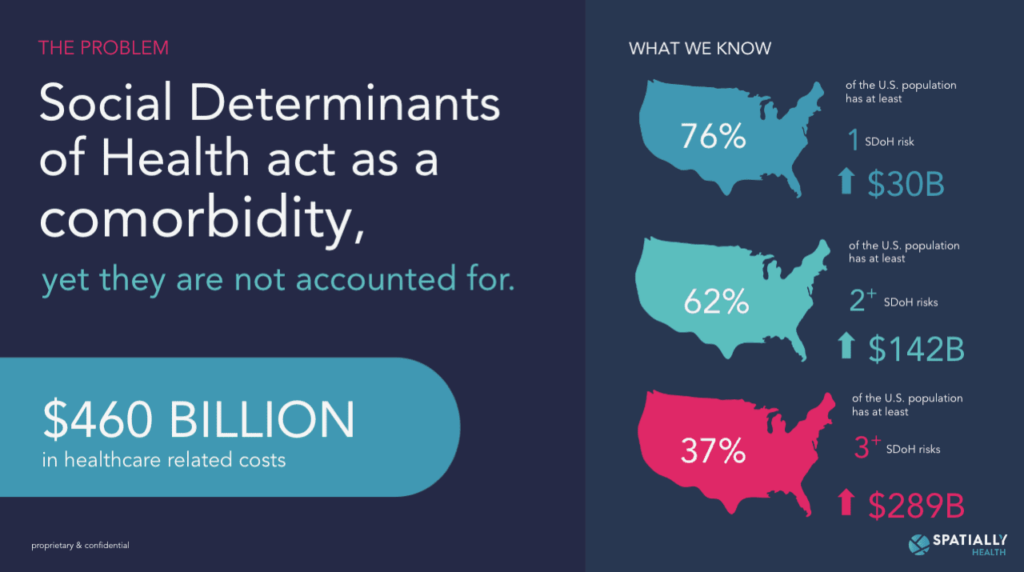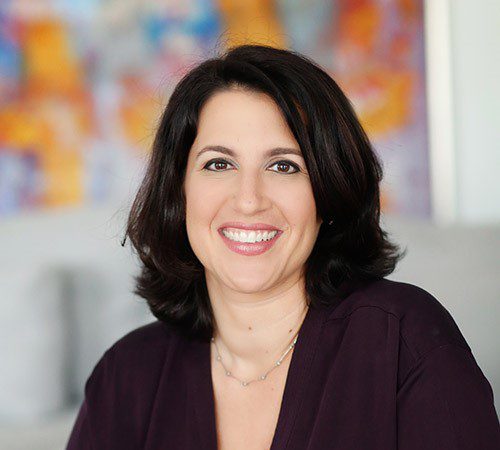By Riley Kaminer
It’s no secret that healthcare costs are spiraling out of control. That is particularly problematic considering that the industry comprises 20% of our country’s GDP. The fee-for-service model, which is prevalent in the healthcare industry, focuses on quantity rather than quality.
But increasingly, healthcare systems are moving towards value-based care: a model for reimbursement that rewards providers for efficient, effective services by tying payments for care delivery to the quality of care provided. The idea is that this model will inject a bit of much-needed fiscal responsibility and ultimately help consumers, while also helping prevent physician burnout.
One key aspect to this model is understanding social determinants of health. Simply put, these are the environmental factors where people live and work that affect a wide range of health, functioning, and quality-of-life outcomes and risks.
“80% of our health outcomes are determined outside of medical walls,” Miami-based Hillit Meidar-Alfi told Refresh Miami. “This means that you can go to the doctor, you can get treatment – but really what’s what’s going to impact and influence the outcomes the most is what happens beyond that medical intervention.” These social determinants of health include economic (in)stability, education access and quality, neighborhood and built environment, and social and community contexts.
Meidar-Alfi, an architect by training who spent most of her career working in infrastructure planning, realized the issues with our healthcare system firsthand when her mother was undergoing cancer treatment. “Making it through these challenges successfully requires so much effort and support, and it just broke my heart to think about how these people are going to get home and take care of themselves on a daily basis.”
“It’s really hard and it’s a big problem,” Meidar-Alfi continued. “We shouldn’t be in this situation.”
So in 2019, Meidar-Alfi decided to do something about this problem. She pivoted her business analytics platform into the healthcare space, re-launching as Spatially Health. The platform leverages location intelligence and spatial analytics tools to help Accountable Care Organizations (ACOs) like healthcare providers and insurers better identify and quantify the social determinants of health risk at the individual level.
For example, Spatially Health can help provide context around why a diabetic patient might be missing their appointments. Perhaps they lack reliable transportation, or have a language barrier that prevents them from communicating with their doctor’s office. For a patient like that, Spatially Health might recommend that the ACO help coordinate transportation or organize a telemedicine visit.
“As an ACO, you want to be able to lay out strategically how you are going to plan for and manage 10,000, 50,000, or 100,000 different patients,” explained Meidar-Alfi. “Through our platform and the insights that we provide, they’re able to first understand at a high level what their patient looks like, and what their challenges are. Then they can know what is required from a resource perspective.”
Meidar-Alfi, who has lived in Miami for the last 12 years, is active in our local community, including on the Board of the Adrienne Arsht Center Trust. Spatially Health currently has 10 full-time employees. Up to now, the company has been funded by a handful of angel investors, but Meidar-Alfi signaled that she plans to seek additional funding in the near future.

READ MORE ON REFRESH MIAMI:
- Mental health platform Opción Yo acquired by serial entrepreneur Abi Mandelbaum
- Ostro secures $45M to ‘bring e-commerce software to healthcare’
- StartUP FIU and pharma giant GSK kick off 12-week Innovation Challenge to address healthcare disparities in minority communities
- AI, climatetech and healthtech reign supreme on Day 1 of eMerge Americas’ 10th anniversary - April 18, 2024
- Brought together by tech, kept together by culture: Miami’s protagonistic role in LatAm’s startup story - April 15, 2024
- New World Angels launches Innovation Fund to write pre-seed checks - April 12, 2024





